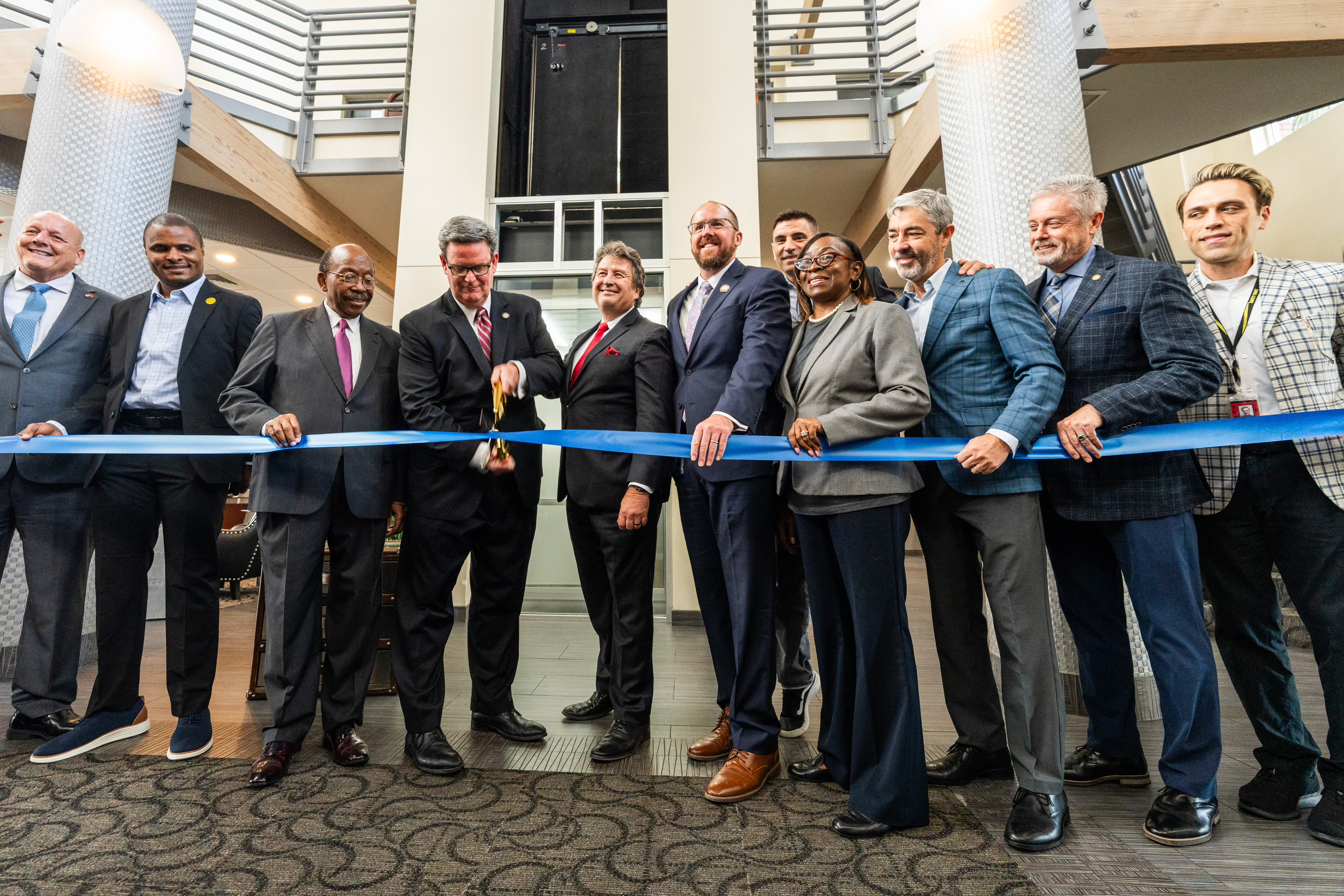BETA Technologies expands its electric aviation charging network throughout state of Florida
Several airports across the state of Florida have partnered with BETA Technologies to install electric aircraft and vehicle charging infrastructure at their facilities.
They include Tallahassee International Airport (TLH), Gainesville Regional Airport (GNV), and Bob Sikes Airport (CEW), all of whom have brought chargers online in preparation to participate in the emerging electric aviation industry.
TLH and BETA, in partnership with Million Air, held a commissioning event yesterday (Wednesday), to recognize the state-wide momentum toward operationalizing AAM. The event featured representatives from TLH, BETA, FDOT, Tallahassee City, United Therapeutics, and electeds from the city and state.
FDOT Secretary Jared W. Perdue, P.E, said: “As Florida’s aviation industry is experiencing tremendous growth to keep pace with our growing population and record-breaking number of tourists, FDOT is looking to the future as the national leader in AAM deployment, which will revolutionize how we efficiently move people and goods.
“I’m grateful for the work of the AAM Advisory Committee who are working to guide our communities, attract manufacturers to Florida, and keep Florida on track to be the first state in the nation to adopt AAM as a part of our multi-modal transportation network.”
This electrification of airports across the state comes amid the Florida Department of Transportation (FDOT) Aviation Office’s continued work to release the Advanced Air Mobility Land Use Compatibility and Site Approval Guidebook – a document designed for Florida local governments use in long-term Advanced Air Mobility (AAM) planning.
The BETA-designed and manufactured chargers are multimodal and interoperable, capable of powering various types of electric aircraft as they come into service, and ground electric vehicles today.
Each site installation in Florida includes one Level 3 Fast-Charger located inside the fence (airside) for use by electric aircraft and electrified airport ground vehicles, and one Level 2 Charger located outside the fence (landside) for use by ground EVs.
David Pollard, City of Tallahassee Director of Aviation, said: “Tallahassee International Airport plays a vital role in driving the local economy, generating an estimated $1 billion annually. As TLH continues to expand its impact, we are excited to join the Florida Department of Transportation, BETA, and Million Air to introduce cutting-edge electric aircraft charging infrastructure at the airport.
“This innovation marks another milestone in our commitment to fostering economic growth and enhancing connectivity to the Capital City, paving the way for future opportunities and sustainable advancements.”
Gary Buchanan, Million Air’s Executive Vice President, added: “For forty years, we at Million Air, never sit back and watch innovation. We are always leaning in and pushing the envelope of development in services for our customers, our industry, and our environment.
“One of the greatest attributes of great customer service is the anticipation of needs. In working with the team at Beta and here at the Tallahassee International Airport, along with the City of Tallahassee, in the great state of Florida, we are truly setting the future in motion. Today we are advancing our industry with the infrastructure of tomorrow.”
These three join a growing network of BETA chargers – which are UL-certified and compliant to industry standards. The company has brought more than 30 chargers online along the East, West, and Gulf Coasts, and they have been purchased by numerous industry players including Archer Aviation, Atlantic Aviation, Signature Aviation, AvFlight, and the Department of Defense.
BETA says it will continue to bring additional site locations online – within and outside of Florida – in partnership with airports, FBOs, and OEM partners across the country. These sites will bring electric aviation to both metropolitan areas as well as rural and hard-to-reach communities with limited access to air transportation.
Blain Newton, Beta’s Chief Operations Officer, said: “Electric aviation presents a huge opportunity to transform the industry by making it more cost-effective, and growing a new job market.
“The reliability of electric aviation will be a game changer when it comes to things like providing access to healthcare and connecting communities across the state and beyond. We are grateful for FDOT’s support, and the partnership of airports like Tallahassee, Gainesville, and Bob Sikes in taking this step toward the future.”
BETA continues to progress its all-electric aircraft – the A250 ALIA VTOL and the CX300 ALIA CTOL – toward certification, anticipating entry into service in 2025 and 2026, respectively.
The company opened the doors to a 188,500 sq ft aircraft production facility in Vermont, where it is beginning to manufacture aircraft for delivery to its growing base of customers. They comprise global operators across cargo and logistics, medical, defense, and passenger applications, including UPS, Air New Zealand, United Therapeutics, Bristow, Blade, LCI, Helijet, and the U.S. Department of Defense.
It’s estimated that the Advanced Air Mobility (AAM) market in the U.S. will reach $115 billion per year by 2035, and create more than 280,000 high-paying jobs.
In addition to economic stimulation, AAM is poised to unlock greater healthcare access and increased medical transport for patients and cargo, as one third of the U.S. geography is within 15-20 minutes of an aerial response.

